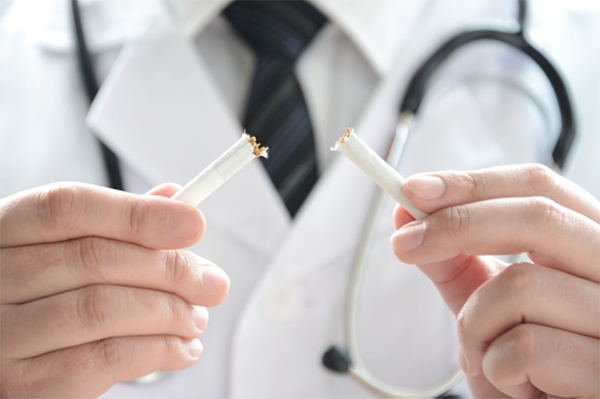
Preparing for hip or knee replacement surgery is about creating the right conditions for healing during recovery. One lifestyle habit that can significantly affect your surgical outcome is smoking. With November recognized as home to the Great American Smokeout, it’s an ideal time to highlight how smoking also impacts joint and bone healing.
How Smoking Interferes with Healing
Cigarette smoke contains nicotine, carbon monoxide, and tar. These substances reduce oxygen flow and restrict circulation. After joint replacement, your body depends on oxygen-rich blood to heal the incision and strengthen the new implant’s connection to bone.
When this healing process is disrupted, wounds close more slowly, and the risk of infection increases. Studies show that smokers are nearly twice as likely to develop complications after surgery compared to non-smokers.1
Higher Risk of Infection and Implant Failure
Smoking weakens the immune system and impairs the body’s natural defense mechanisms. For joint replacement patients, this can lead to serious infections around the implant. In some cases, the infection may require additional surgery to clean or even replace the artificial joint.
Nicotine also affects bone metabolism, which interferes with the bone’s ability to fuse properly with the implant. Over time, this can result in loosening, instability, or early implant failure, which can limit the joint's functionality.
Long-Term Impact on Bone and Joint Health
Even before surgery, smoking contributes to decreased bone density and cartilage deterioration, two major risk factors for osteoarthritis. These effects make the joints more vulnerable to wear and tear, often leading to the need for replacement earlier in life.
For those who quit smoking before surgery, studies show improved healing, fewer complications, and longer-lasting results. Quitting just a few weeks before the procedure can improve circulation and support better surgical outcomes.
Protecting Your New Joint and Overall Health
If you’re considering hip replacement or knee replacement surgery, addressing lifestyle factors such as smoking can make a meaningful difference in your recovery and long-term results. Improved oxygen flow, stronger bones, and better wound healing all contribute to a more successful outcome.
As a fellowship-trained orthopedic surgeon specializing in hip and knee replacement, Dr. Frisch utilizes cutting-edge techniques and personalized care plans designed to promote recovery, protect joint function, and enhance quality of life. Book an appointment to discuss your joint health and learn how to prepare for surgery safely.
AUTHOR: Nicholas B. Frisch, MD is a specialist orthopedic surgeon focusing on minimally invasive hip and knee joint replacement as well as complex primary and revision surgery. He believes in creating a personalized experience with the highest level of service. For all appointments & inquiries, please contact our offices located in Rochester, MI.
Reference:








